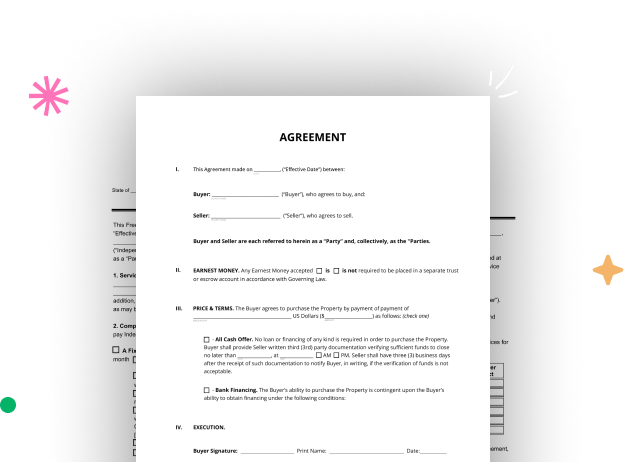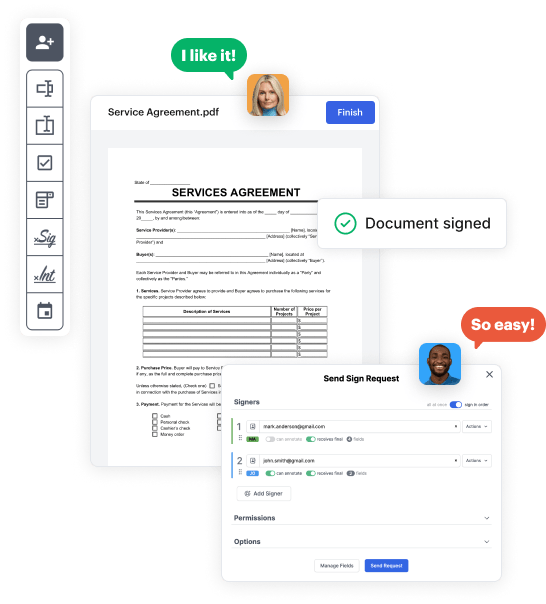

First, log in to your DocHub account. If you don't have one, you can simply sign up for free.
Once signed in, head to your dashboard. This is your primary hub for all document-focused processes.
In your dashboard, select New Document in the upper left corner. Pick Create Blank Document to craft the Ohio Warranty Deed Form from scratch.
Place numerous fields like text boxes, photos, signature fields, and other options to your form and designate these fields to intended recipients as required.
Personalize your form by incorporating directions or any other necessary details leveraging the text feature.
Meticulously check your created Ohio Warranty Deed Form for any discrepancies or needed adjustments. Leverage DocHub's editing features to perfect your form.
After finalizing, save your work. You may opt to save it within DocHub, export it to various storage options, or send it via a link or email.